Meet Kippee, A Foster Hen Living in a Brooklyn Apartment with 700+ Plants
When a local bird sanctuary needed a home for an abandoned Rhode Island Red, Summer Rayne Oakes stepped in.
Meet Kippee, A Foster Hen Living in a Brooklyn Apartment with 700+ Plants
When a local bird sanctuary needed a home for an abandoned Rhode Island Red, Summer Rayne Oakes stepped in.
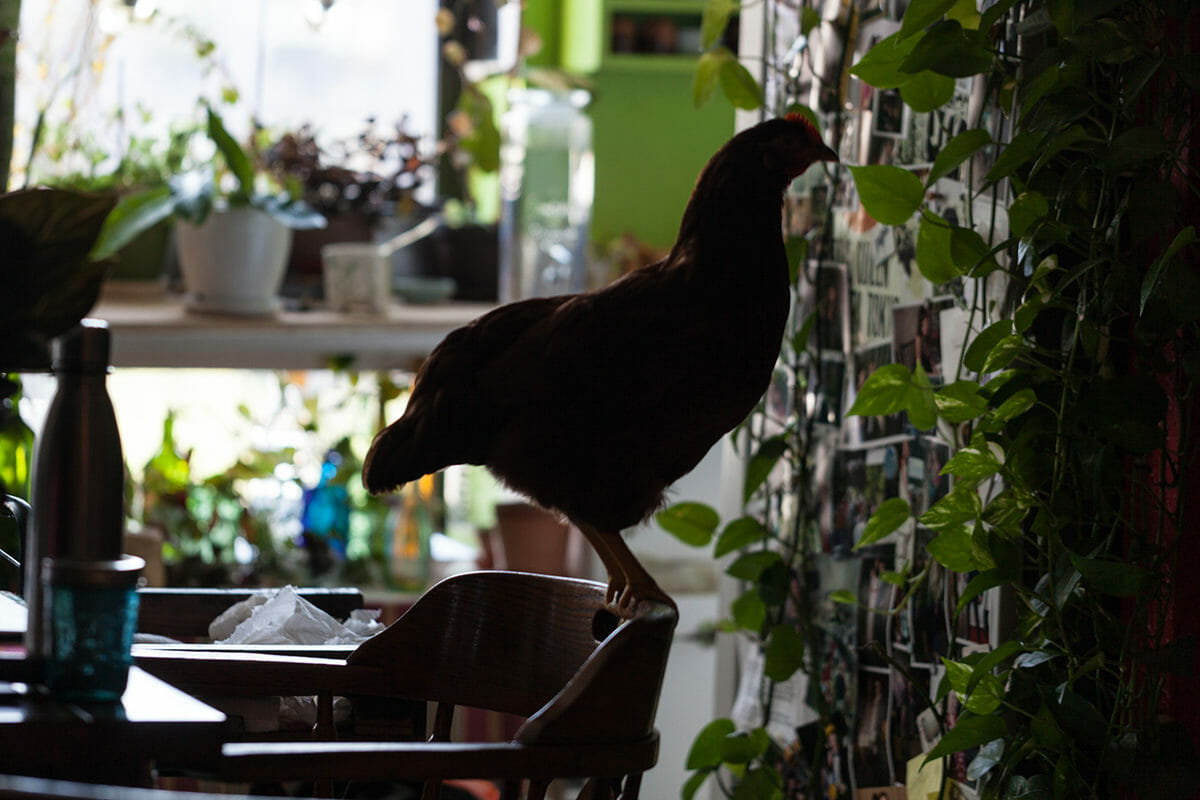
Summer Rayne Oakes may be familiar to Modern Farmer readers as the woman who keeps 500 plants in her Brooklyn, NY apartment (Update: Plant count has since increased to more than 700). Well, now she’s become known for something new: the chick with the chicken.
It all started when Oakes, who runs the popular blog Homestead Brooklyn, found a wounded ovenbird in her local community garden last May. Not just a plant lover but an animal lover, too, Oakes brought the creature to the Wild Bird Fund – the only bird rehabilitation center in New York City – for treatment, and that’s where she met a small, friendly hen.
“I’m sitting there in the waiting room like a mother with a sick child, waiting to get a prognosis on the ovenbird, and this very personable, kind of scraggly, ragamuffin hen jumped onto my lap,” explains Oakes. “That was Kippee.”
Based on the animal’s age and the time of year, the sanctuary’s staff guessed that the Rhode Island Red was likely an Easter gift that was released into the wild once the novelty of a baby chick wore off. But the Wild Bird Fund being a home for, well, wild birds wasn’t really the right place for a chicken.
[mf_blockquote style=”clean” author=”Summer Rayne Oakes”]Yes, Kippee does eat some of the plants. She completely mowed down my pothos. I had to trim it way back. [/mf_blockquote]
Oakes didn’t take home Kippee that first visit – she was still touring for her recent book, SUGARDETOXME – but the chick stayed on her mind. A month later the hen moved into Oakes’ Williamsburg loft.
Kippee, who Oakes says is “more of a people’s hen than a hen’s hen,” quickly imprinted on her new owner. The pair are regulars at their local community garden, and they’re frequently spotted together around town. “It’s amazing walking around with her because everyone’s floored,” says the author, who grew up with 12 chickens and a rooster named Wallace at her home in rural, northeast Pennsylvania. They’ve been identified while riding the subway (“the woman recognized Kippee, not me”), and she recalls getting scolded by a police officer for letting the bird roam free at a park: “‘He says, ‘Excuse me ma’am, is that your hen? She has to be on a leash.’ It was the most ridiculous conversation ever had by two people.” (Oakes has no worries that Kippee will bolt or stray since she’s so attached.)
Besides being an author, blogger, and houseplant expert, Oakes is also a sustainable fashion advocate and model. To keep the animal’s anxiety at bay, Oakes began taking Kippee along on photo shoots, which eventually resulted in the hen getting work of her own, including campaigns with Lululemon, Celestial Seasons tea, fashion editorials, and even a bidet company (her first solo gig!).
As much as she loves her, Oakes knows Kippee can’t live in her Brooklyn apartment forever. When her community garden declined the idea of a chicken coop (they’d tried it in the past and didn’t want to try again), Oakes went looking for other options. After a few false starts, the pair has finally found Kippee’s forever home: Los Sures, a community-based non-profit and senior center in Williamsburg, Brooklyn, just a few blocks from Oakes’ apartment. Oakes is raising money to restore the existing coop at Los Sures, which keeps hens as part of its larger food justice program. (The organization also operates a small hydroponic farm and manages local gardens to help feed and support the community.) The goal is to have the coop restored by early summer and then start acclimating Kippee to the rest of the flock, so she can be with other hen friends.
So what’s life like with 500 plants and a hen in a 1,200 square-foot Brooklyn loft? Oakes was kind enough to share some photos with us – just scroll down. And while the Los Sures coop fundraiser has already met its modest goal, every bit helps – and all goes back to the community center. Read more and donate here.
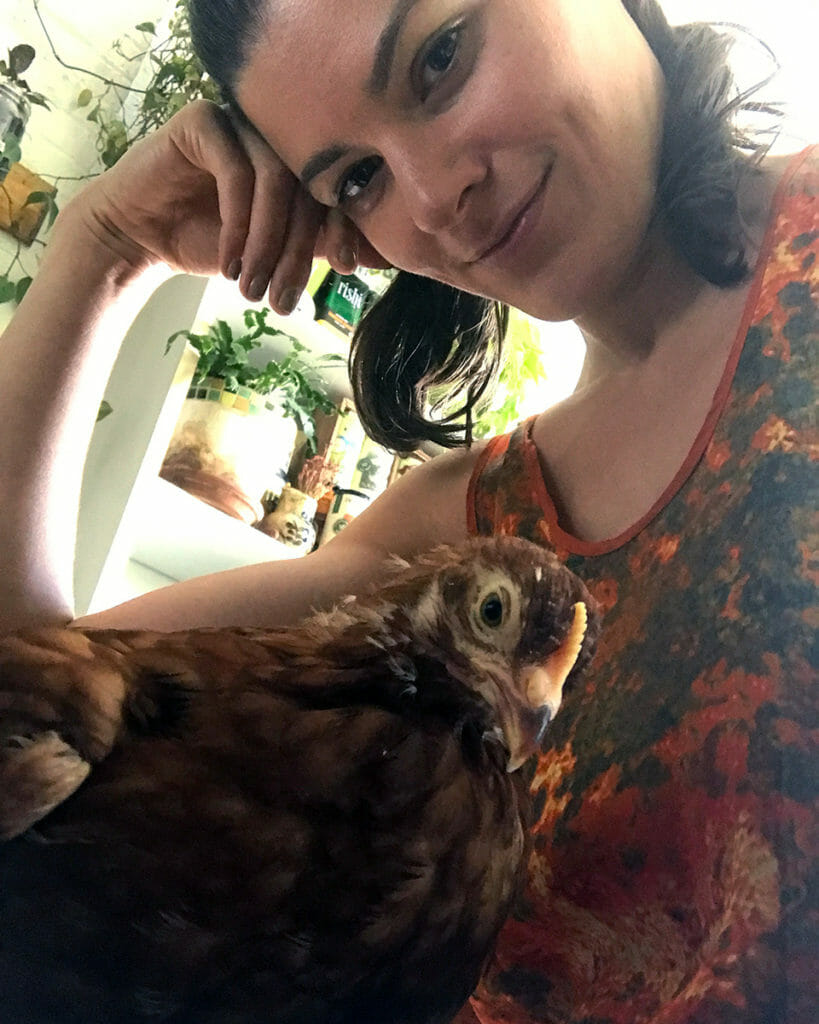

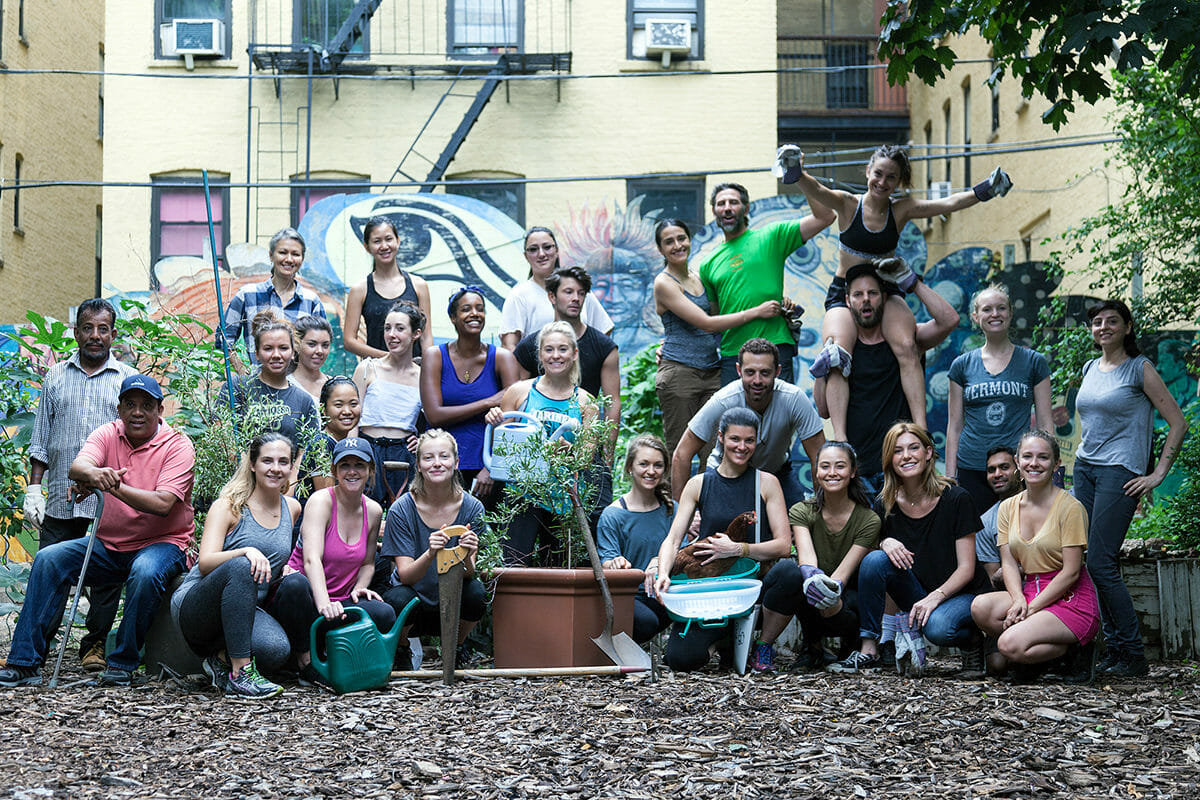
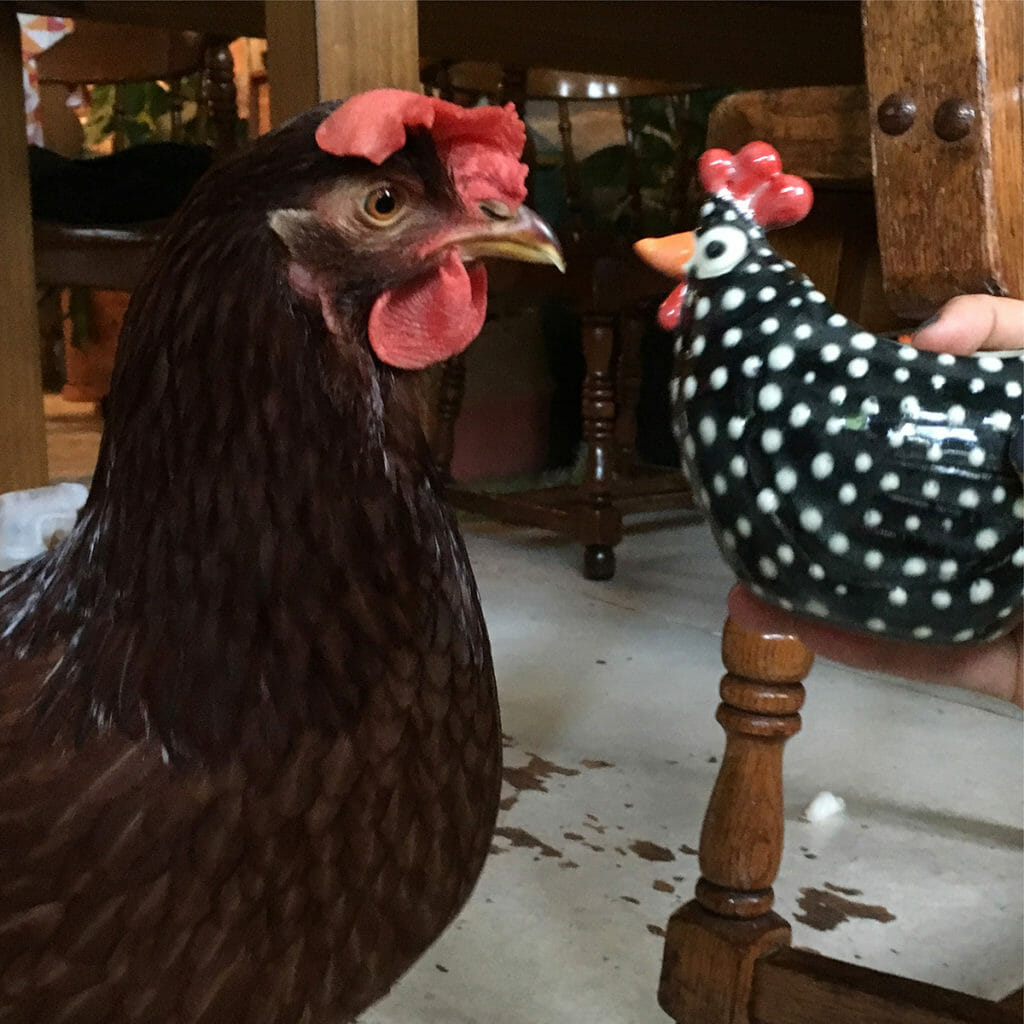
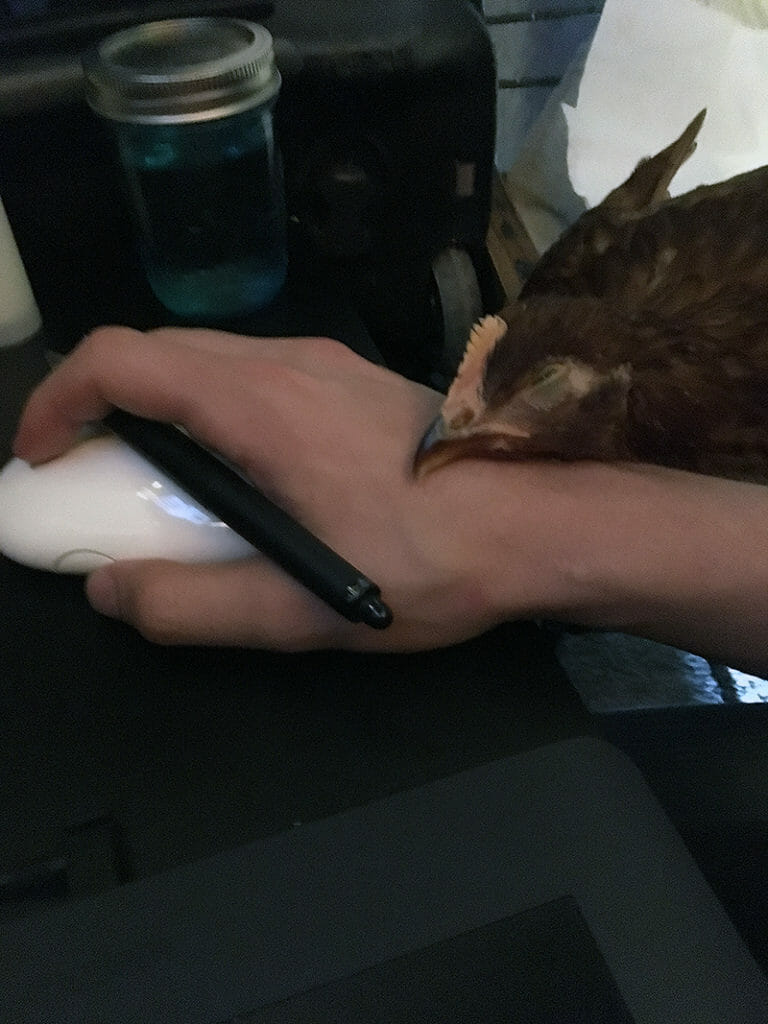
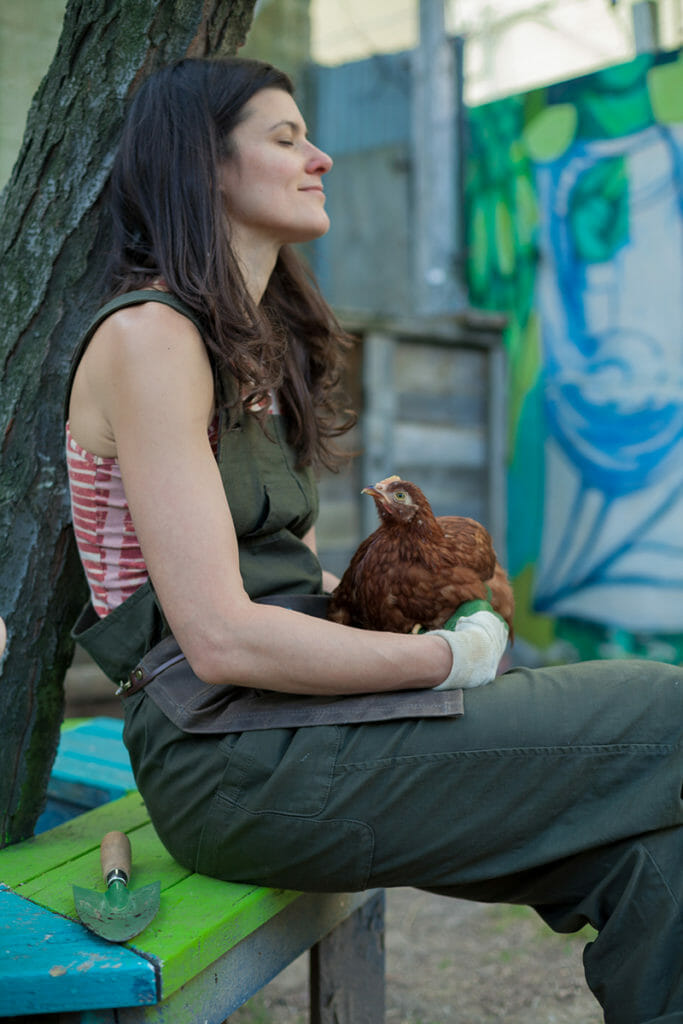
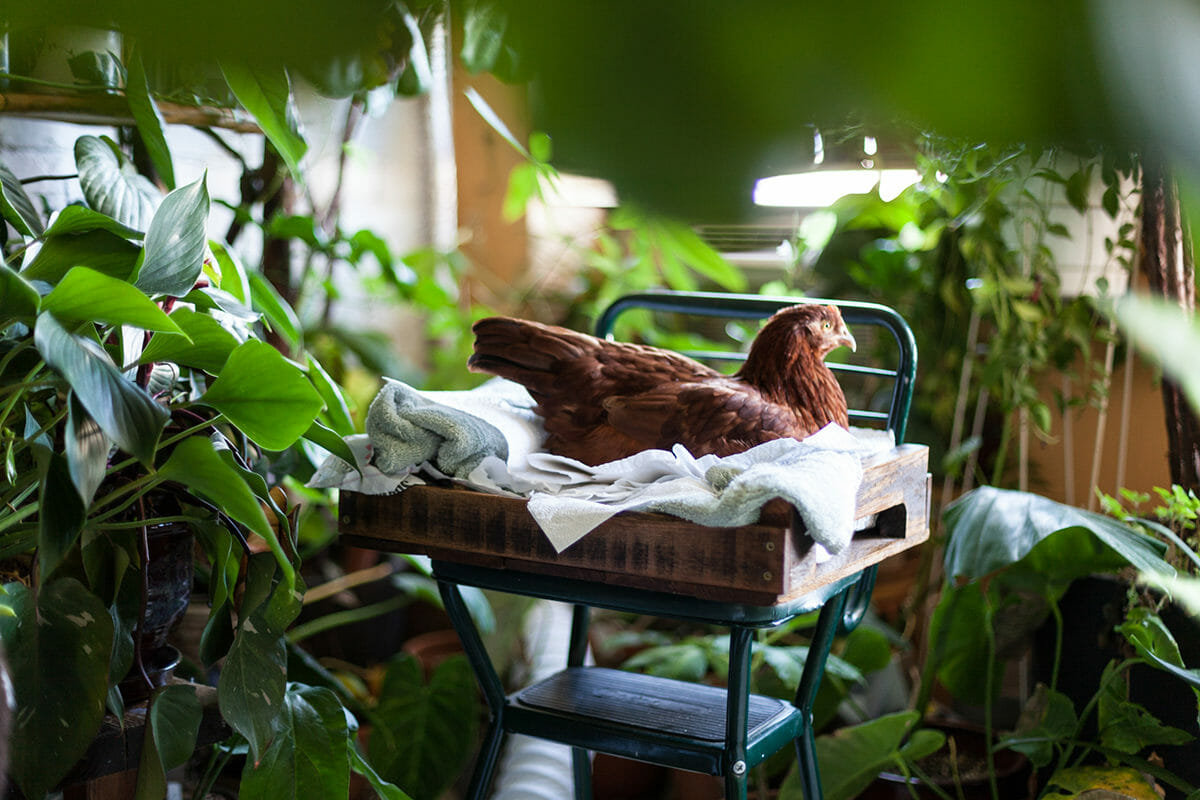
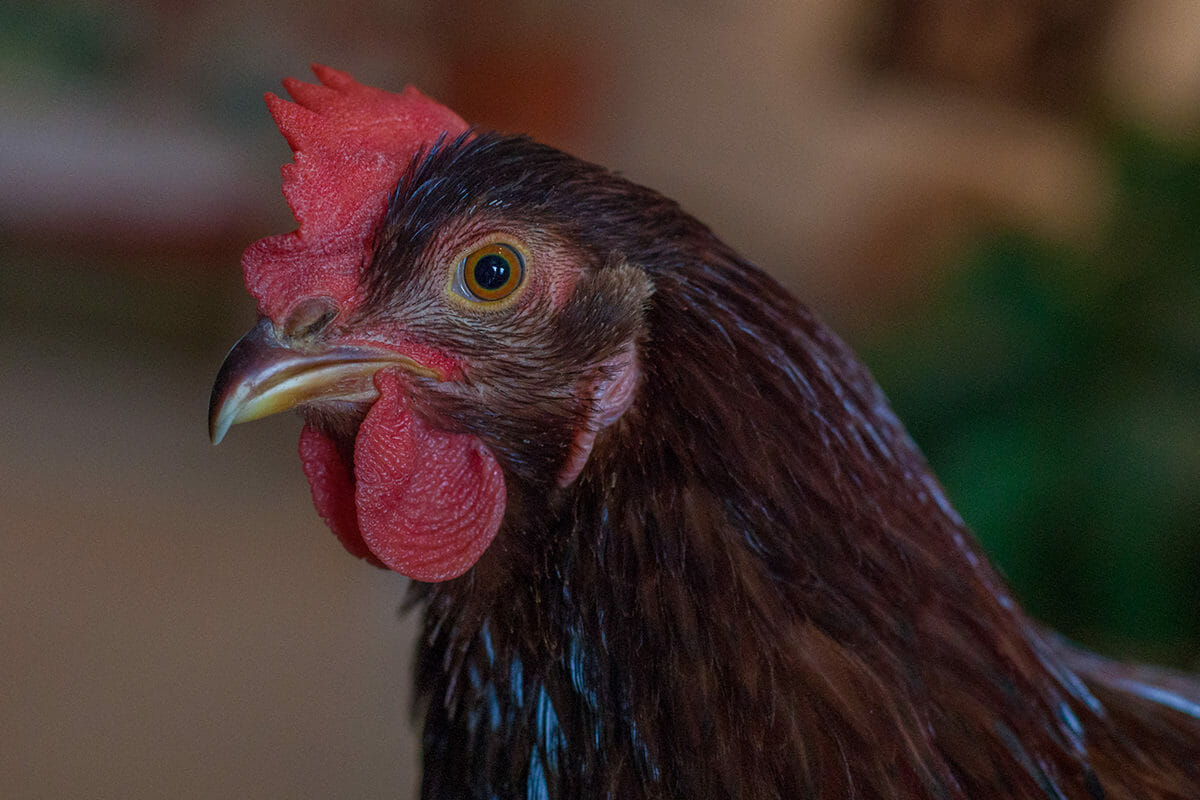

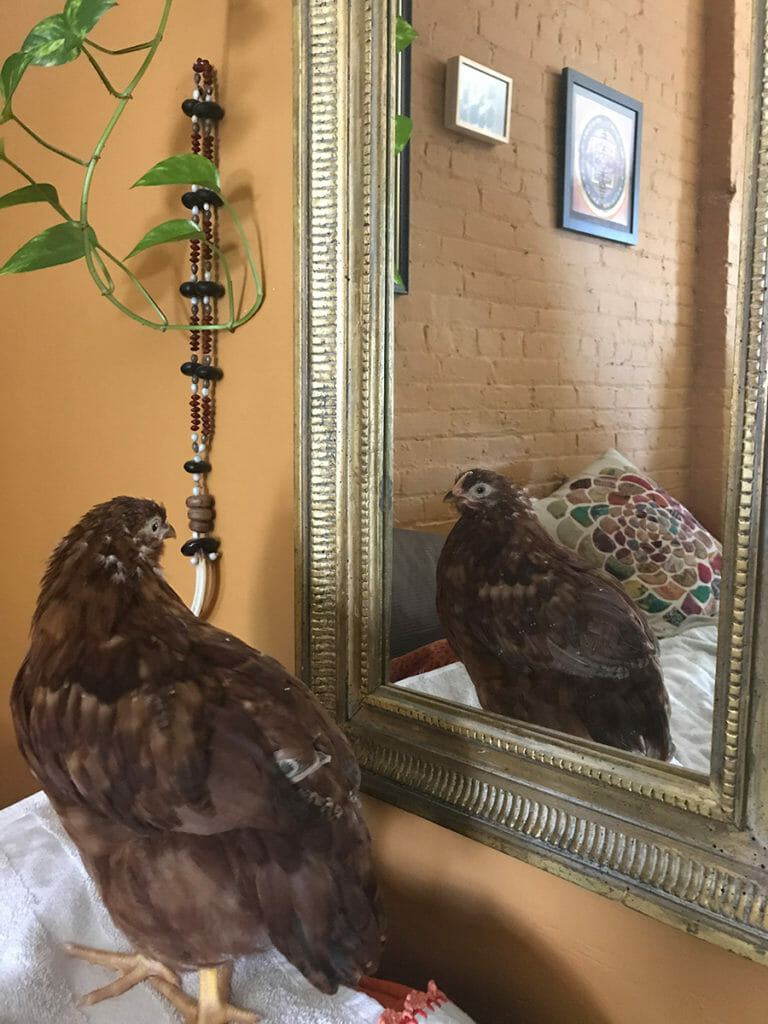
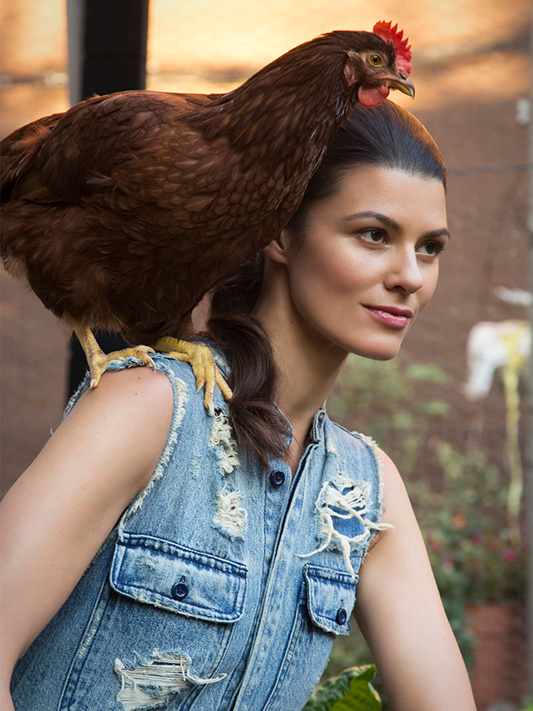
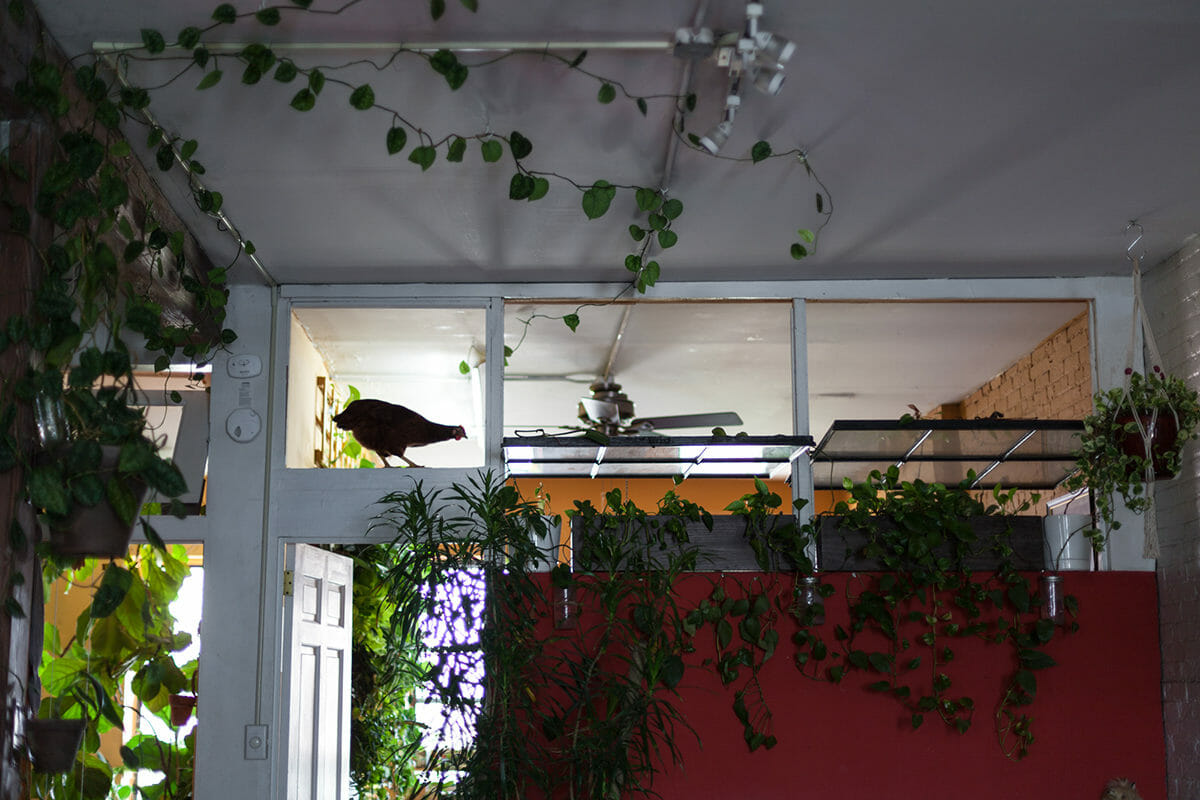
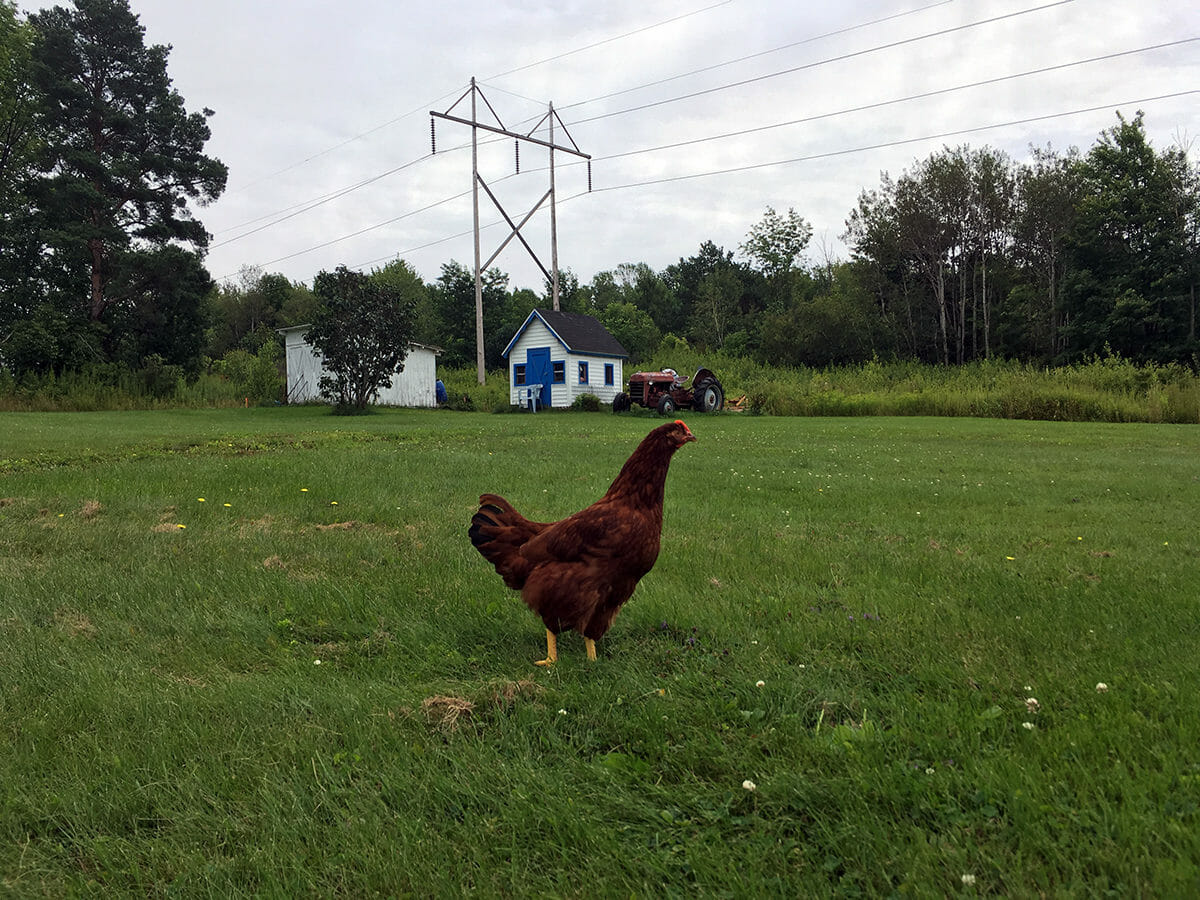
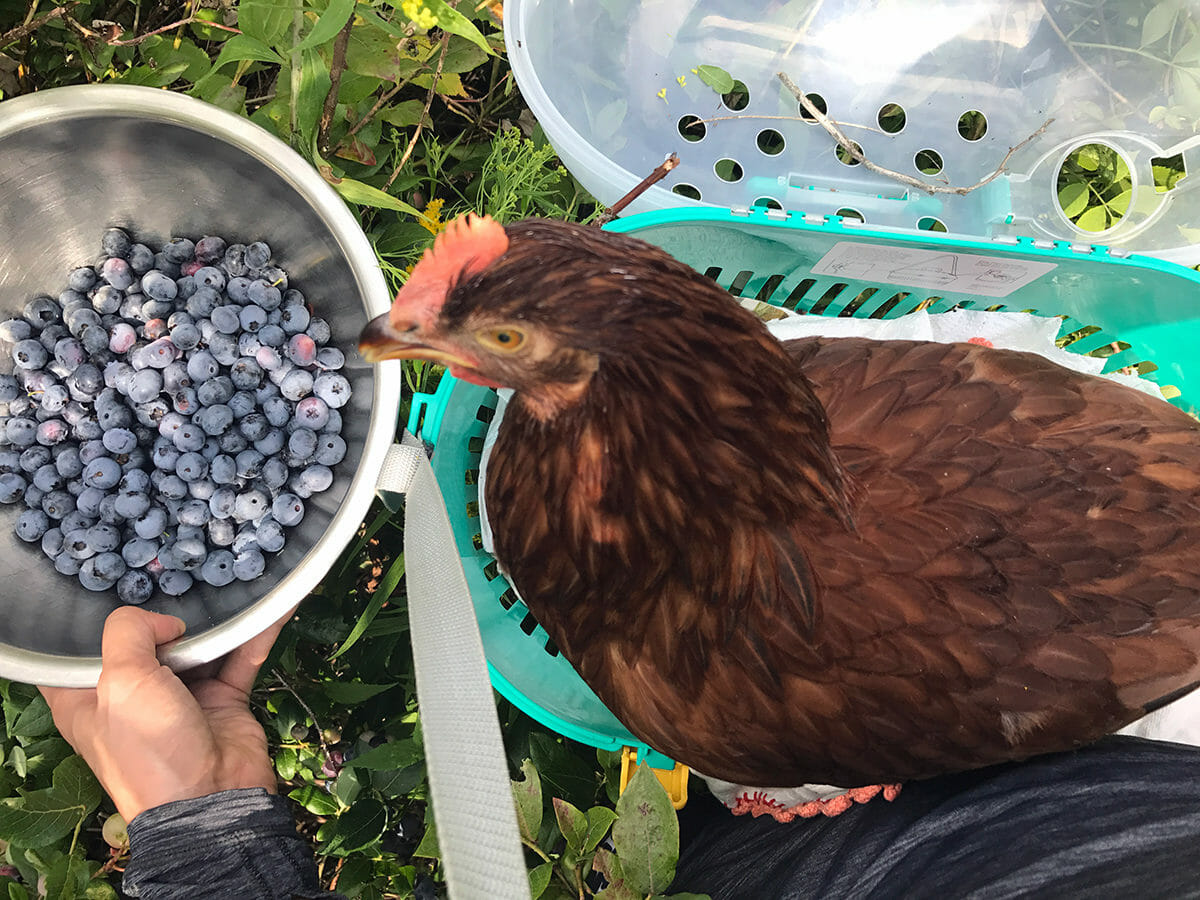
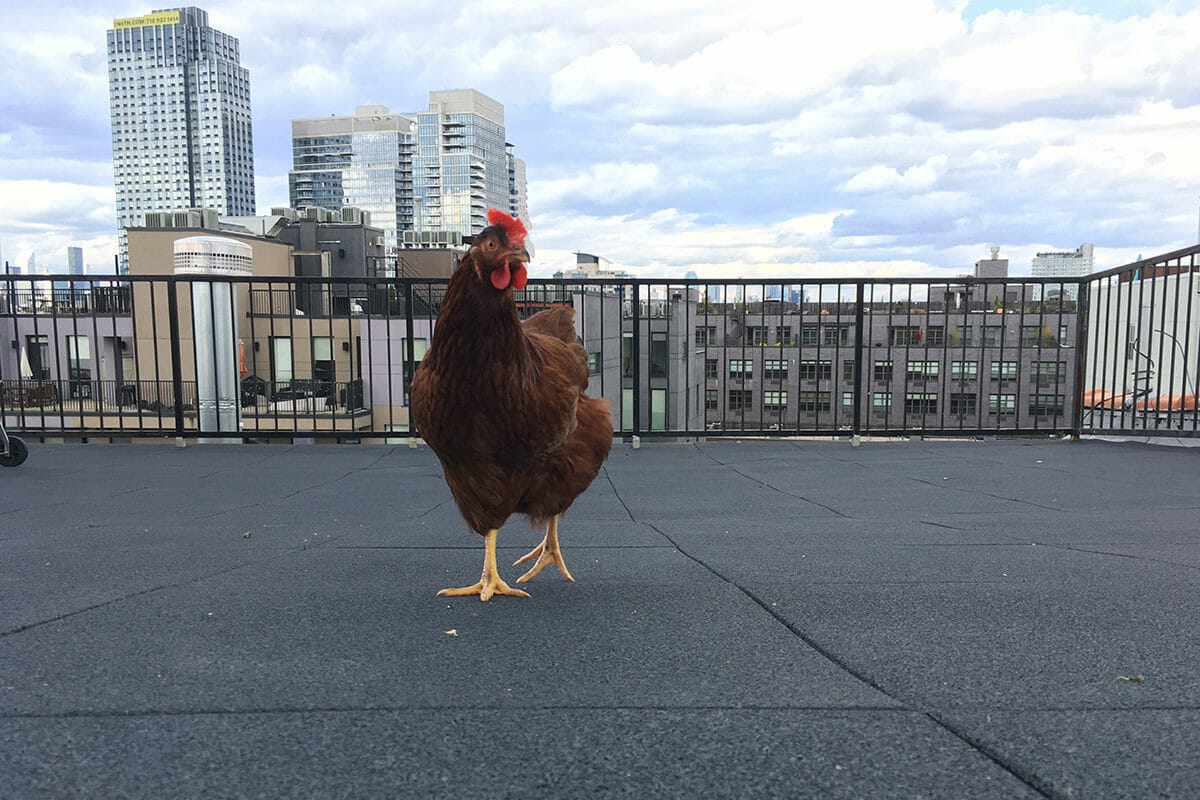
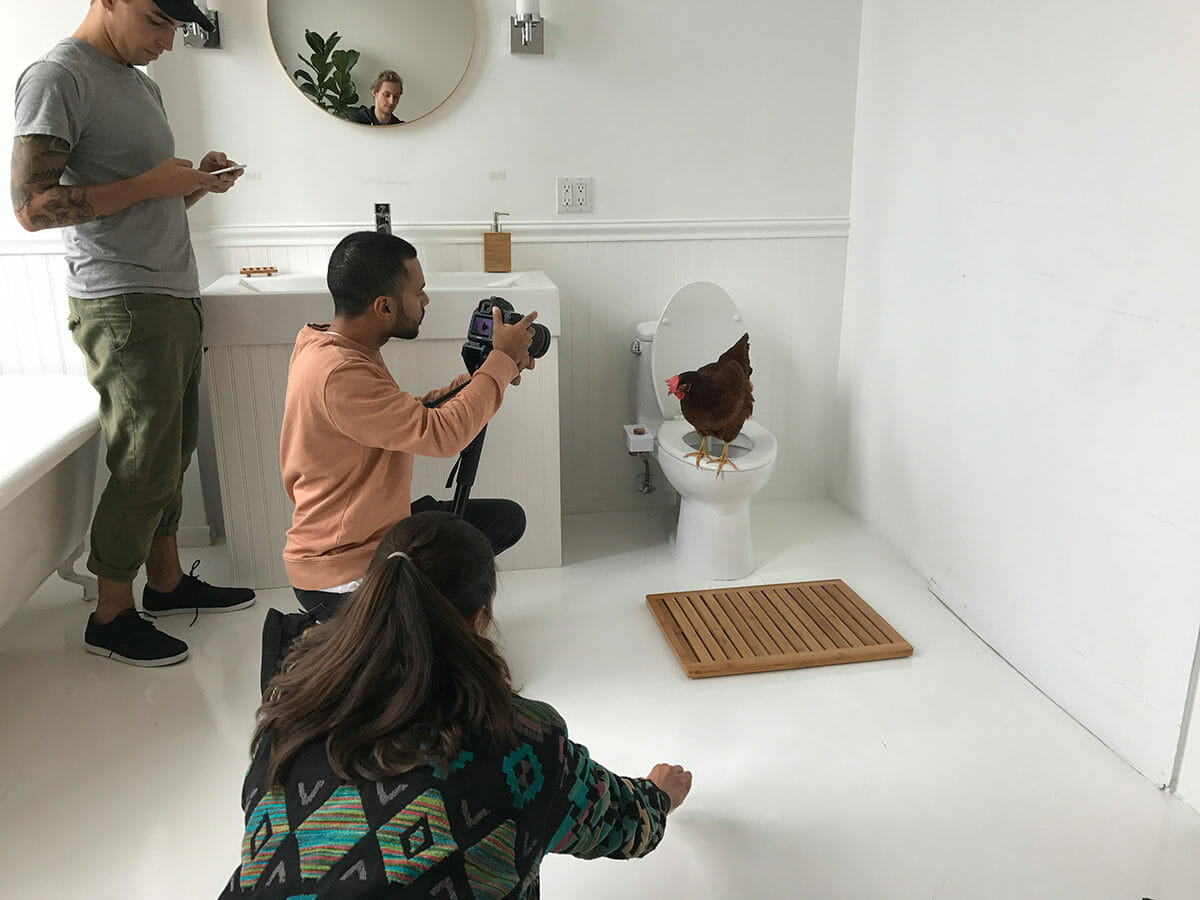
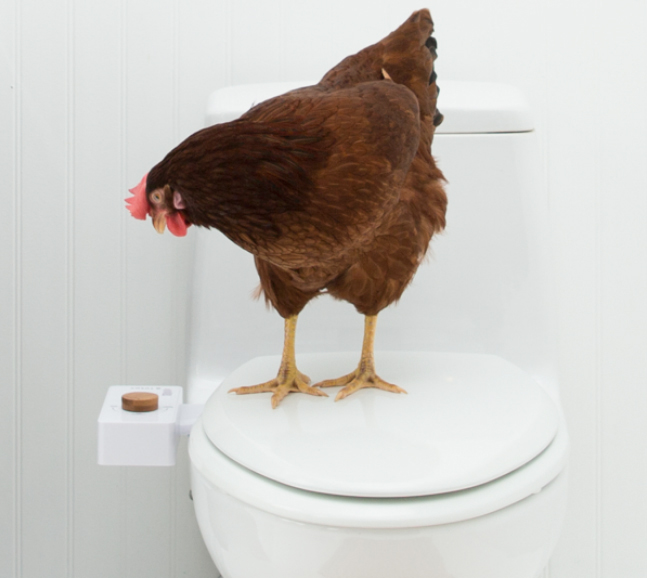
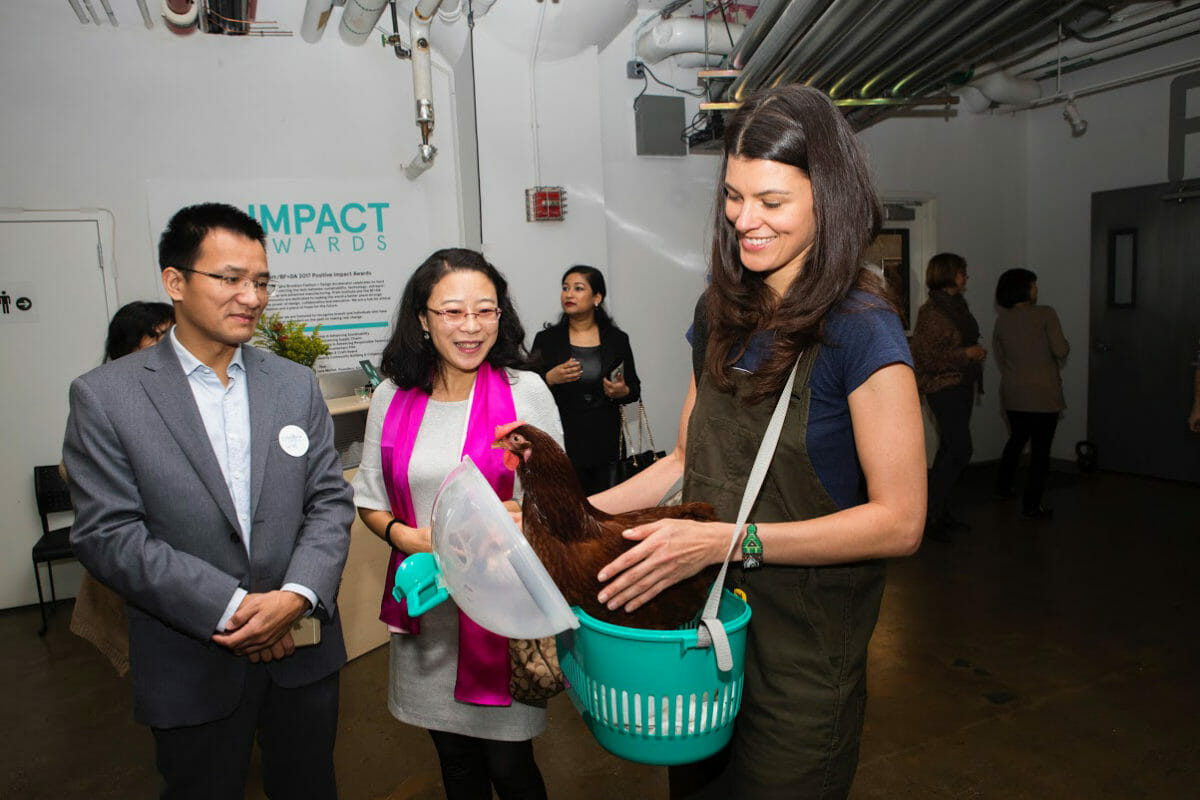
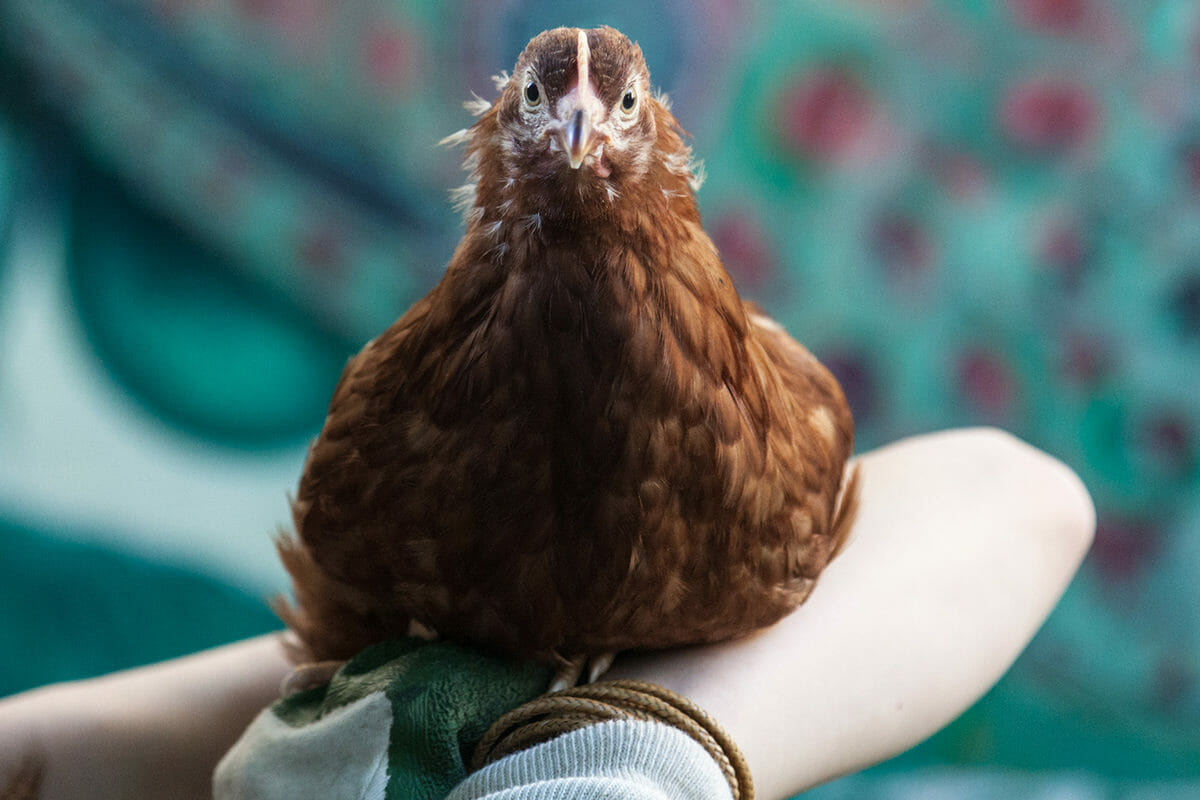
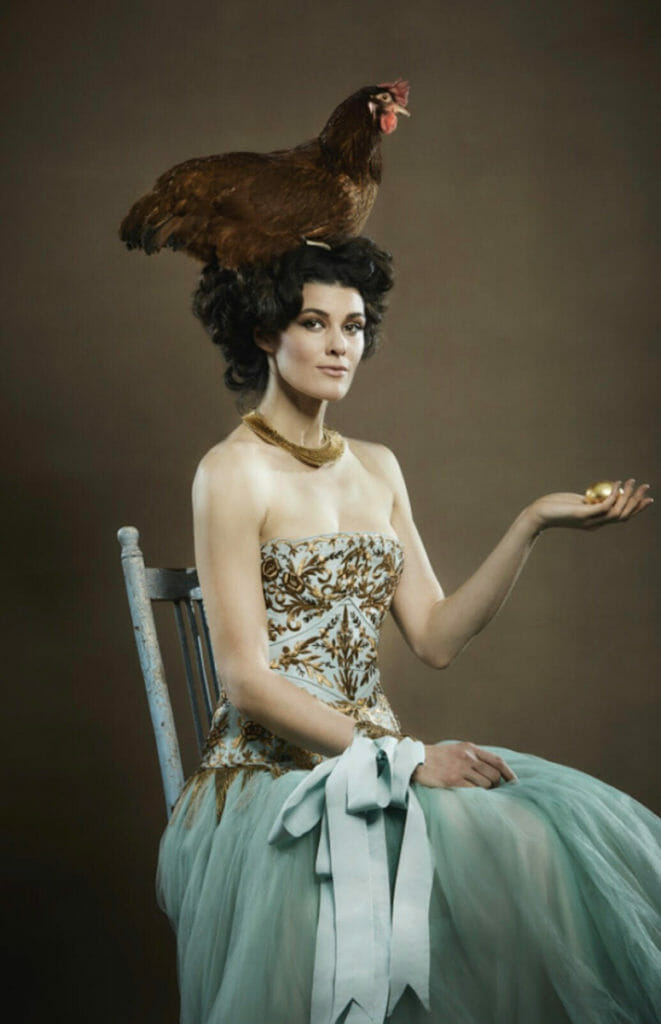
Follow us
This work is licensed under a Creative Commons Attribution-NoDerivatives 4.0 International License.
Want to republish a Modern Farmer story?
We are happy for Modern Farmer stories to be shared, and encourage you to republish our articles for your audience. When doing so, we ask that you follow these guidelines:
Please credit us and our writers
For the author byline, please use “Author Name, Modern Farmer.” At the top of our stories, if on the web, please include this text and link: “This story was originally published by Modern Farmer.”
Please make sure to include a link back to either our home page or the article URL.
At the bottom of the story, please include the following text:
“Modern Farmer is a nonprofit initiative dedicated to raising awareness and catalyzing action at the intersection of food, agriculture, and society. Read more at <link>Modern Farmer</link>.”
Use our widget
We’d like to be able to track our stories, so we ask that if you republish our content, you do so using our widget (located on the left hand side of the article). The HTML code has a built-in tracker that tells us the data and domain where the story was published, as well as view counts.
Check the image requirements
It’s your responsibility to confirm you're licensed to republish images in our articles. Some images, such as those from commercial providers, don't allow their images to be republished without permission or payment. Copyright terms are generally listed in the image caption and attribution. You are welcome to omit our images or substitute with your own. Charts and interactive graphics follow the same rules.
Don’t change too much. Or, ask us first.
Articles must be republished in their entirety. It’s okay to change references to time (“today” to “yesterday”) or location (“Iowa City, IA” to “here”). But please keep everything else the same.
If you feel strongly that a more material edit needs to be made, get in touch with us at [email protected]. We’re happy to discuss it with the original author, but we must have prior approval for changes before publication.
Special cases
Extracts. You may run the first few lines or paragraphs of the article and then say: “Read the full article at Modern Farmer” with a link back to the original article.
Quotes. You may quote authors provided you include a link back to the article URL.
Translations. These require writer approval. To inquire about translation of a Modern Farmer article, contact us at [email protected]
Signed consent / copyright release forms. These are not required, provided you are following these guidelines.
Print. Articles can be republished in print under these same rules, with the exception that you do not need to include the links.
Tag us
When sharing the story on social media, please tag us using the following: - Twitter (@ModFarm) - Facebook (@ModernFarmerMedia) - Instagram (@modfarm)
Use our content respectfully
Modern Farmer is a nonprofit and as such we share our content for free and in good faith in order to reach new audiences. Respectfully,
No selling ads against our stories. It’s okay to put our stories on pages with ads.
Don’t republish our material wholesale, or automatically; you need to select stories to be republished individually.
You have no rights to sell, license, syndicate, or otherwise represent yourself as the authorized owner of our material to any third parties. This means that you cannot actively publish or submit our work for syndication to third party platforms or apps like Apple News or Google News. We understand that publishers cannot fully control when certain third parties automatically summarize or crawl content from publishers’ own sites.
Keep in touch
We want to hear from you if you love Modern Farmer content, have a collaboration idea, or anything else to share. As a nonprofit outlet, we work in service of our community and are always open to comments, feedback, and ideas. Contact us at [email protected].by Erin Scottberg, Modern Farmer
April 26, 2018
Modern Farmer Weekly
Solutions Hub
Innovations, ideas and inspiration. Actionable solutions for a resilient food system.
ExploreExplore other topics
Share With Us
We want to hear from Modern Farmer readers who have thoughtful commentary, actionable solutions, or helpful ideas to share.
SubmitNecessary cookies are absolutely essential for the website to function properly. This category only includes cookies that ensures basic functionalities and security features of the website. These cookies do not store any personal information.
Any cookies that may not be particularly necessary for the website to function and are used specifically to collect user personal data via analytics, ads, other embedded contents are termed as non-necessary cookies.